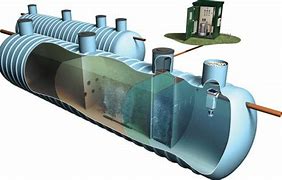
Latest Trends in the Treatment of Sewage for Commercial Establishments
General Introduction
The treatment of sewage has become an increasingly pivotal aspect of sustainable business practices for commercial establishments. As environmental concerns continue to rise, companies are recognizing the significance of responsible wastewater management to reduce their ecological footprint and comply with regulations. In this article, we will explore the latest trends in sewage treatment for commercial establishments, pinpointing cutting- edge technologies and eco-friendly approaches that promote environmental stewardship.
Advanced Membrane Bioreactors (MBRs)
One of the latest trends in sewage treatment systems is the adoption of Advanced Membrane Bioreactors (MBRs). MBRs combine the traditional activated sludge treatment with membrane filtration to produce high-quality effluent. These treatment systems offer several advantages, including minimum space requirements, increased removal efficiencies, and improved nutrient removal. As commercial establishments seek sustainable solutions, Membrane Bioreactors have emerged as a preferred alternative due to their superior performance and minimal environmental impact.
Energy-Efficient Treatment Processes
In the quest for sustainability, energy efficiency has become a paramount concern in sewage treatment for commercial buildings. State-of-the art technologies now integrate energy- saving processes, such as anaerobic digestion, which harnesses biogas as a renewable energy source. By making the use of the energy generated during sewage treatment, businesses can offset their energy consumption and contribute to a greener environment.
Decentralized Treatment Systems
Decentralized sewage treatment systems have gained popularity as they offer a viable alternative to conventional centralized approaches. These types of systems are more adaptable to the requirements of individual commercial establishments and can be customized to treat specific types of wastewater effectively. By decentralizing treatment, companies can significantly reduce the transportation costs associated with sewage disposal and minimize the strain on municipal infrastructure.
Application of Artificial Intelligence (AI)
The integration of Artificial Intelligence (AI) and machine learning technologies has revolutionized various industries, and sewage treatment is no exception. AI-driven systems for sewage management can optimize the treatment process by continuously analysing data, predicting changes in wastewater composition, and adjusting treatment parameters accordingly. This not only improves the efficiency of treatment but also reduces operational costs for commercial buildings.
Resource Recovery from Wastewater
Traditionally, sewage treatment focused solely on the removal of pollutants from wastewater before discharge. However, the latest trend is to go beyond mere treatment and explore opportunities for resource recovery. Techniques like nutrient recovery, where phosphorus and nitrogen are recovered from wastewater for use as fertilizers, shows the potential for a circular economy approach. By extracting valuable resources from sewage, commercial establishments can transform waste into valuable commodities, encouraging a more sustainable and profitable business model.
Green Infrastructure
Green infrastructure solutions have gained traction as eco-friendly and aesthetically pleasing alternatives to traditional sewage treatment methods. Sewage treatment techniques such as constructed wetlands and biofiltration systems utilize natural processes to purify wastewater. These systems not only provide efficient treatment but also improve biodiversity and create appealing landscapes. For commercial establishments seeking to project an environmentally conscious image, green infrastructure is indeed an ideal choice.
Electrochemical Treatment Technologies
Electrochemical treatment technologies for sewage have emerged as a promising trend in the sewage treatment industry. Electrochemical treatment processes, such as electrocoagulation and electrooxidation, effectively remove contaminants from wastewater without incorporating harmful chemical additives. These technologies are scalable, eco- friendly, and exhibit high removal efficiencies, making them attractive options for commercial establishments striving to meet stringent water quality standards.
Zero Liquid Discharge (ZLD) Systems
Zero Liquid Discharge systems, also known as ZLD systems, have gained prominence as a sustainable solution for commercial establishments generating high-strength wastewater. These systems aim to eliminate wastewater discharge entirely by recovering and reusing treated water and concentrating the remaining pollutants for responsible disposal. Implementing Zero Liquid Discharge systems demonstrates a commitment to water conservation and responsible environmental stewardship.
Wrapping Up
As environmental awareness continues to grow, the treatment of sewage for commercial establishments has evolved to embrace state-of-the art technologies and environmentally friendly approaches. From advanced membrane bioreactors to zero liquid discharge (ZLD) systems, businesses now have an array of alternatives to choose from to align their sewage treatment practices with sustainability goals. By investing in these latest trends and technologies for sewage treatment, commercial establishments can not only reduce their environmental impact but also enhance their public image and contribute to a cleaner, healthier planet. As the field of sewage treatment continues to advance, we can look forward to even more innovative and efficient technologies and solutions in the future.




